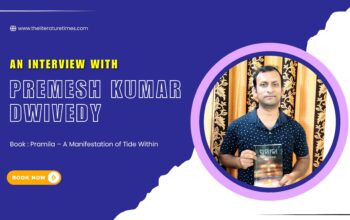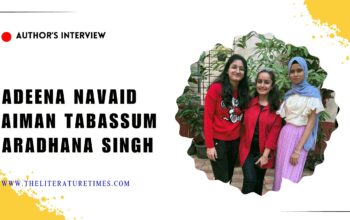In today’s world, politics and violence have become partners. Hate campaigns, rampaging mobs, arbitrary arrests, tortures, rapes, killings, burning, looting, rioting, bombs and bullets are everyday news. There is exploitation, suppression and extermination of whole sections of population. Age old humanitarian values seem to have been forgotten. Sacred and lofty principles of human fraternity and equality are being violated at all levels in the society. The principle of ‘Might is Right’ is the order of the day. Unscrupulous and ruthless people have combined political power with money power to extend their boundary of dominance. These people stifle the voice of ethics and violate human rights. As a consequence, the ordinary people of the society are being deprived of their liberty and moral stamina which are summum bonum of mental, physical, and spiritual developments of the individuals who constitute the society. If this prevailing perverted and corrupt conditions are allowed to go its own way with its accelerated motion, then sooner or later we would cease to be called human beings and would re-enter into the jungle life. Humanism and altruism will disappear altogether from the earth. Only the man with wolfish qualities will survive while the man with humanitarian qualities will be doomed to death or will be condemned to suffer a life of permanent pain.
The present book, Gandhi Wins India, is a serious attempt to find out a remedy to correct this hopeless situation without using violence of any kind. And this remedy has been found in the Theory and Practice of Non-Violence and Non-Violent Method of Satyagraha of Gandhi who propounded, practised, preached, and propagated his Non-Violent Method of Satyagraha to fight against exploitations, repressions, oppressions, and suppressions pursued by the British Government in India. In South Africa as well as in India, Gandhi very successfully adopted and applied his Non- violent Methods of Satyagraha like Non-Violent Non-Cooperation and Civil Disobedience to fight against the racial discriminations, to established democratic rights and ultimately to win the Complete Independence of India from the domination of the British Rule.
In the present book, Gandhi Wins India, a thorough analysis of the application of Gandhi’s Non-Violent Methods of Non-Cooperation and Civil Disobedience otherwise named by Gandhi as SATYAGRAHA has been made. As Gandhi was having an unflinching faith in the Truth and Non-Violence, he went zealously on developing the Principles of Non-Violence into a powerful but peaceful Method of Change known as the Satyagraha. Through extensive reading of the teachings of various religions of the world and of various thinkers, reformers, and social workers of both oriental and occidental origin and through their constant applications in practical politics, Gandhi enriched, transformed, and theorised the Principles of Non-Violence into a peaceful Method of Change giving it an Indian name Satyagraha. Before Gandhi, no one had tried to use the virtue of Non-Violence as a tool and technique of social and political change so purely, convincingly, effectively, coherently, vividly, and bravely as Gandhi did in South Africa as well as in India. Before Gandhi’s bold and courageous experiment with the Method of Non- violence as a tool of peaceful socio-politico-economic change, the virtue of Non-Violence was considered merely as a virtue to be adopted and practised to correct and cure personal ills and to avoid the wrath of God. But Gandhi gave an entire different practical dimension to the virtue of Non-Violence for solving complex and puzzling problems concerning the Individuals, Society and the State.
According to Gandhi, the Philosophy of Satyagraha is aimed to win over and convert the wrong-doer into a righteous person through a full and complete observance of the virtues of Non-Violence, Truth, Love, Self- suffering. Self-sacrifice, Endurance, Tolerance, and a high degree of respect for the feelings and sentiment of the opponent. The Philosophy of Satyagraha insists on not harming and not injuring the opponent’s body and property, but the Satyagraha demands peaceful and active opposition to immorality, injustice and exploitation by Non-Violent-force, Truth-force, Moral-force, Love-force, Soul-force, Self-suffering, Self-sacrifice and Self-injury. The Philosophy of Satyagraha repudiates suspicion, ill-will and spying against the opponent which are a continuous source of hatred and enmity giving rise to violence. The aim of Satyagraha is twofold-eradication of exploitations and injustices and conversion of the wrong-doer to good by appealing his head and heart through the pursuit of moral and ethical elements as mentioned above. The Satyagrahi (as the follower of Satyagraha is called) should bear all injuries and hardships in doing so. Gandhi propounds that both the Satyagrahi and the evil-doer have a soul or a conscience which responds to the heat of Non-Violence, Truth, Love, Spirit and Morality and, therefore, both should be amended accordingly. The degree of such response and amendment of the soul or conscience is directly proportional to the temperature of the heat of Non-Violence, Truth, Love, Morality, Self-suffering, Self-sacrifice and Self-injury. Thus, the Principle of Satyagraha is a Non-Violent-force, a Truth-force, a Love-force, a Moral-force, and a Soul-force pitched against Brute-force, Armed force and even Nuclear-force.
In fact, it was Gandhi’s greatest achievement which he attained during his 22 years anti-apartheid struggle in South Africa and his about 32 years Non-Violent Struggle for the achievement of Independence of India in the Indian National Movement. Gandhi showed the unarmed and the downtrodden and the poverty-stricken people of India as well as the world how to face the challenges of violence without resorting to violence? He taught the people how to save both the exploiter and the exploited from being drenched in their own blood and, thereby, to save humanities and other godly qualities of human beings so that both the weak and the strong would live in peace and tranquility. In a nut shell, Gandhi moralized practical politics by basing it on the virtues of Non-Violence, Truth, Love and other moral and ethical elements and emphasized the need to use politics for the welfare and betterment of the entire community of human beings without any discrimination. Basically, Gandhi adopted and glorified the lofty principles of humanitarianism and altruism in every field of life, even in practical politics. Because for Gandhi, Non-Violence, Truth, God, Love, Morality, Religion and Politics are all convertible terms and hence, they should be used for the benefit, betterment, and salvation of Mankind.
Thus, the present book, Gandhi Wins India deeply elaborates Gandhi’s Theory of Non-Violence and the Philosophy of Satyagraha and analyses carefully and rationally the historical applications of Gandhi’s Principles of Non-Violent Methods of Non-Cooperation and Civil Disobedience otherwise known as the Satyagraha and its final outcome in the Indian National Movement in the form of Complete Independence of India from the British Rule on 15 August, 1947.



